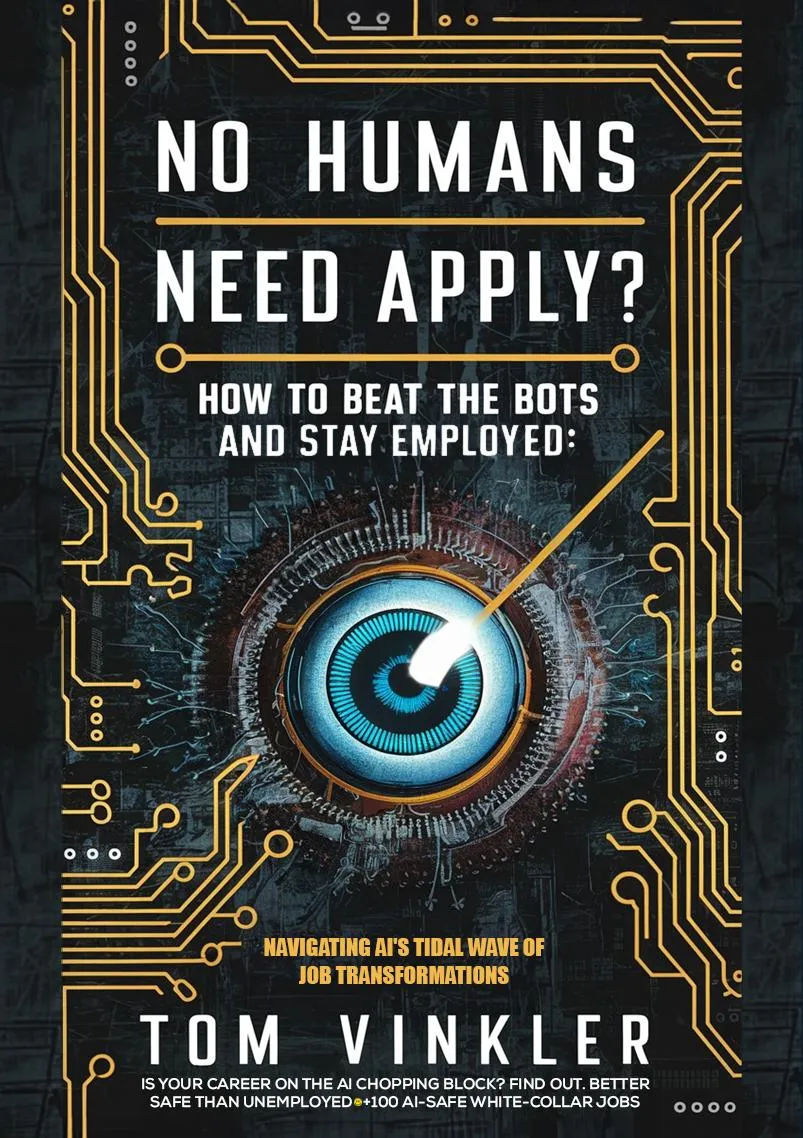
Keep up to date on AI and
Job Market trends
Keep up to date on AI developments
Learn how AI is impacting particular segments
Find emerging and new roles the new world is creating
Find out about community grass-roots initiatives to shape our world the way we want it. (not how 'they' want it)
Useful Reading

Top 10 Industries Most Likely To Be Disrupted by AI
“AI is probably the most important thing humanity has ever worked on. I think of it as something more profound than electricity or fire.” - Sundar Pichai, CEO Google Inc.
As artificial intelligence (AI) continues to advance at a rapid pace, its impact on various industries becomes increasingly apparent. From automating routine tasks to providing predictive insights, AI is revolutionizing the way businesses operate and reshaping the job market. In this article, we'll explore the top 10 industries that are most likely to be disrupted by AI and discuss how workers in these sectors can prepare for the upcoming changes.
Healthcare: AI is transforming the healthcare industry by improving diagnostic accuracy, personalizing treatment plans, and streamlining administrative tasks. Machine learning algorithms can analyze medical images, assist in drug discovery, and even provide virtual nursing assistance. While AI may not replace doctors entirely, it will likely change the nature of their work, focusing more on complex cases and patient interaction.
Finance and Banking: The finance sector is already leveraging AI for fraud detection, risk assessment, and investment predictions. Robo-advisors are becoming increasingly popular, offering personalized investment advice at a lower cost than human advisors. As AI becomes more sophisticated, it may take over more complex financial tasks, such as loan underwriting and portfolio management.
Customer Service: Your New Best Friend, the Chatbot
Remember when talking to customer service meant a long wait and a frustrating conversation with someone reading from a script? Say hello to the AI chatbot - always on, never grumpy, and surprisingly good at handling basic requests! While it can't yet match the empathy of a human, it's getting better at it every day. Get ready for the world where simple questions, returns, and troubleshooting are done by a tirelessly polite (and secretly pixelated) customer service rep.Legal Services: AI is making its way into the legal sector, automating document review, legal research, and contract analysis. Machine learning algorithms can scan through vast amounts of legal documents, identifying relevant information and helping lawyers prepare cases more efficiently. While AI may not replace lawyers entirely, it will likely change the nature of their work, allowing them to focus on more complex tasks.
Agriculture: Precision agriculture powered by AI is transforming the way crops are grown and managed. AI-driven systems can analyze soil conditions, weather patterns, and crop health to optimize irrigation, fertilization, and pest control. Robotics and drones equipped with AI can perform tasks such as planting, harvesting, and monitoring crops, increasing efficiency and reducing labor costs.
Education: AI is personalizing the learning experience, providing adaptive tutoring systems that can tailor content and pace to individual students' needs. Intelligent educational platforms can analyze student performance, identify areas for improvement, and offer targeted feedback. AI-powered tools can also automate grading and provide insights to teachers, allowing them to focus on more engaging aspects of education.
Media and Entertainment: AI is changing the way content is created, curated, and consumed in the media and entertainment industry. Machine learning algorithms can analyze user preferences and provide personalized content recommendations. AI can also assist in video editing, special effects, and even content creation, such as generating news articles or composing music.
Insurance: AI is transforming the insurance industry by automating claims processing, fraud detection, and risk assessment. Machine learning algorithms can analyze vast amounts of data to predict potential risks, personalize insurance policies, and streamline the underwriting process. AI-powered chatbots can also assist customers with policy inquiries and claims filing, improving customer service and efficiency.
Human Resources: AI is transforming the human resources (HR) function by automating repetitive tasks, such as resume screening and employee onboarding. Machine learning algorithms can analyze job applicants' resumes and social media profiles to identify the best candidates, reducing bias and improving the hiring process. AI-powered chatbots can assist employees with HR-related inquiries, such as benefits enrollment and policy questions, freeing up HR professionals to focus on more strategic tasks.
Energy and Utilities: AI is helping the energy and utilities sector optimize power generation, distribution, and consumption. Smart grids equipped with AI can balance supply and demand in real-time, predict maintenance needs, and detect anomalies in the system. Machine learning algorithms can also analyze consumer behavior and provide personalized energy-saving recommendations, promoting sustainability and reducing costs.
Books Published
No Humans Need Apply?
If you want to get the whole story and understand all the ins and outs on this topic, you might want to check this out.

